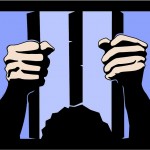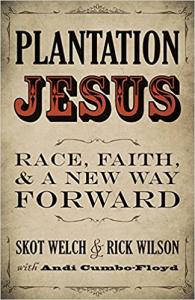After serving a prison sentence and being released back into the world, one is faced with a wide array of seemingly insurmountable challenges to overcome. Discrimination against the recently released is rampant, and is on top of the racial and economic discrimination one may have faced even before entering prison. Those released from prison often have a hard time finding a job that will pay them a living wage, and they no longer qualify for student loans to help improve their employability. They are often denied safe, affordable housing, and are not allowed live in public housing (even if living with family member that do qualify). They often lose access to food stamps and other government support benefits, just at the very moment they need it most. Friends and family may have turned away, and it can feel like there is nowhere left to go. Could this be where God’s Church is needed most? Over 75% of prisoners released are re-arrested within five years. The first month after release is critical, but recently released citizens often face the same challenges that led them to prison in the first place.
A Role for the Local Church
The Church can play a critical role in receiving recently released citizens back into their communities. Indeed, we are called to “let mutual love continue. Do not neglect to show hospitality to strangers, for by doing that some have entertained angels without knowing it. Remember those who are in prison, as though you were in prison with them; those who are being tortured, as though you yourselves were being tortured” (Hebrews 13:1-3).
Jesus himself was put on trial, found guilty, imprisoned, placed on death row, and ultimately subject to capital punishment by the state. If we are to identify with Christ, we are to identify with those who find themselves in similar situations today.
Local churches can play a vital role in God’s plan for transformation. Encourage your congregation to engage in authentic intentional prayer for the incarcerated and for local prisons. Pray for those about to be released and those who have recently reentered their communities. Pray for the renewal of both the imprisoned as well as of the systems and structures that brought them there.
Include these prayers in the regular liturgy of your church, perhaps along with other ‘prayers of the people,’ if that is a tradition in your setting. Do not let the incarcerated people of our society be forgotten or left out of our daily prayers, but rather be diligent in lifting them up to God. In doing so, watch as our prisons and neighborhoods are blessed with God’s redemptive.
As prayers continue to be lifted, consider beginning a small group or bible study around the issues of mass incarceration. In partnership with willing correctional institutions, begin to send birthday and Christmas cards to specific inmates. Have all the members of your church sign these cards as part of their Sunday morning routines. Begin to ponder what it would look like for your church to become a sanctuary for recently released citizens.
It is important to engage your congregation early and often around these issues to help increase awareness and compassion. Similarly, it is important that the entire worshiping community remain mindful and prayerful together, not simply leaving it as a specialized interest of a few. Lift up the prisons and those ministering with them as a community, knowing that you are responding to God’s call to remember the incarcerated.
Be prepared for some challenges. The bureaucracy associated with prison ministry can be daunting. So too can be the cultural differences we may experience in prison ministry work. We learn many things about ourselves and our own culture’s assumptions and values when we encounter those different from ourselves. And it is in so doing that we see the face of God.
Isaiah 61:1 says “the Spirit of the Lord God is upon Me, Because the Lord has anointed Me to preach good tidings to the poor; He has sent Me to heal the brokenhearted, To proclaim liberty to the captives, And the opening of the prison to those who are bound.” What does it mean to take these words seriously? What witness would we bear by living out God’s challenge to walk beside the imprisoned? Imagine how such a commitment might radically transform not only the individuals we help, but also profoundly alter our own lives, our local churches, and indeed entire communities for the glory of Christ.
Katelin Hansen (@BTSFblog) is the editor of By Their Strange Fruit (BTSF), an online ministry facilitating justice and understanding across racial divides. BTSF explores how Christianity’s often-bungled relationship with race and racism affects modern ministry and justice. Recognizing that racial brokenness hinders our witness to the world, BTSF strives to increase the visibly of healthy and holy racial discussion by approaching justice and reconciliation from a Christ-minded perspective.
Read more at By Their Strange Fruit













